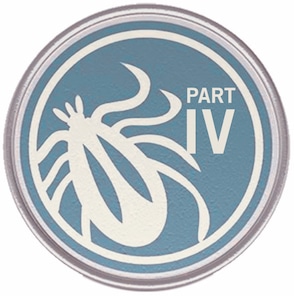National Lyme Disease Awareness Month — Part Four: Preventing Acute Lyme Disease from Turning into Chronic Lyme Disease

The three previous posts in our series about National Lyme Disease Awareness Month introduced the disease, offered tips on its prevention, discussed the many symptoms associated with the Lyme disease, and addressed the importance of blood tests and having your tick tested by TickReport.com.
Today’s post — the last in our series about National Lyme Disease Awareness Month — focuses on how you may be able to prevent acute Lyme disease from turning into chronic Lyme disease.
If you test positive for Lyme disease in its early stages, it is important to begin a treatment protocol immediately to prevent any serious symptoms or damage to the body. On the other hand, if you have been sick for many years, it is more important to initially focus on supporting your body so it can heal, as well as addressing underlying health concerns.
In either case, it’s essential to first put a foundation in place with a properly functioning immune system, and then — with your physician’s guidance — perhaps go back with antibiotics to fight the Lyme disease to get rid of the bacteria. When caught early enough, Lyme disease responds well to antibiotic treatment.
However, when the infection spreads throughout the body, antibiotics may not be enough. (Overuse of antibiotics may also cause more harm than good by killing beneficial microorganisms in the gut, which is the core of the body’s immune system.)
Treatment that seeks to restore health and support the body’s own self-defense mechanisms is often most effective. This typically includes the following:
- Dietary adjustments to address any food sensitivities and ensure proper nutrition
- Lifestyle changes to manage stress more effectively and limit the impact of any unhealthy practices
- Nutritional supplements that have antibiotic properties, as well as those that boost the immune system and support overall health
- Prebiotics and probiotics to repopulate the gut with beneficial microbes, thereby supporting healthy immune function
- Interventions to address any sleep issues — quality sleep is essential for helping the body recover and repair itself
- Medically supervised detox to reduce the body’s overall toxic load.
The Lyme-Gut Connection
It is common for people who are exposed to Lyme disease from tick bites to show no symptoms at all or become ill. Someone could be exposed multiple times and not become sick. That is, until the bacterial load of Borrelia burgdorferi becomes too much, or until the immune system becomes weakened due to stress, gut issues, and adrenal exhaustion to the point where the body is no longer fit to fight the bacteria.
Lyme disease can even spread to the gut, causing GI issues such as bloating, diarrhea, abdominal pain, and constipation. These issues often resemble symptoms of small intestinal bacteria overgrowth (SIBO) and irritable bowel syndrome (IBS). Co-infections are also very common with Lyme disease since the immune system has become compromised. That makes it difficult to decipher which symptoms are coming from the Lyme disease, or to even diagnose the problem in the first place.
Part of resetting your body’s baseline health involves restoring gastro-intestinal balance. More than 70 percent of the human immune system is in the gut, and your body is constantly deciding what do with the foods and drinks you ingest. A healthy gut is a very important interface at the frontline of fighting any kind of infection. At Restoration Healthcare, we focus on addressing three major facets of any disease or illness state:
- Inflammation
- Immune response
- Cause of infection itself (which is especially important for an illness like Lyme that has symptoms across multiple body systems).
There are many actions you can take to promote gut health, including increasing the populations of beneficial gut bacteria. A great first step is to move away from the typical high-fat, high-carb/refined sugars Standard American Diet (SAD) and follow the food guidelines presented later in the section “Lifestyle to Manage Lyme Disease.”
Eating fiber, complex starches, vegetables, lean meats, and prebiotics (to feed the good bacteria in through fermentation) promotes tight junctions within the gut (in other words: a healthy instead of a “leaky” gut) and provides the right conditions for an anti-inflammatory response. It also improves mood, hormonal balance, and cognitive function so that everything works better. Probiotics (through food sources or supplements) are also important to boost the immune system, decrease inflammation, and reset the body’s ability to handle threats posed by any infectious agent.
Seeking Help from a Physician Who Understands Lyme disease
If you have any of the Lyme symptoms described in this post or any of the three earlier posts in this series about Lyme Disease Awareness Month, and have been told there’s nothing wrong with you or that results of all your lab tests are normal, we encourage you to see our medical director, Dr. Raleigh. She is highly experienced in diagnosing and treating Lyme disease. In particular, we recommend a functional medicine practice such as Restoration Healthcare because functional medicine is focused on digging deep — well beyond the symptoms — in order to identify and treat the root causes of illness.
If you’re living in Southern California and looking for a medical practice with significant experience in diagnosing and treating Lyme disease patients, please fill out and submit our New Patient Packet today. We’re here to offer both hope and help!
For more in this four-part series, please see:


